In recent years, the University of Macau (UM) has emerged as a breeding ground for numerous successful start-ups. These companies not only have secured patents and awards in their respective fields, but have also achieved remarkable sales in Macao and mainland China. UM supports entrepreneurial teams in transforming their creative ideas into sustainable businesses. It is dedicated to helping them grow from ‘landlubbers’ into ‘competent swimmers’, so that they can navigate the competitive market with confidence.
Supporting entrepreneurial landlubbers
‘Most of the faculty, students, and alumni who approach us are “entrepreneurial landlubbers”—they know little about innovation and entrepreneurship. That’s why they come to CIE: to learn and embrace the challenges,’ says Prof Elaine Leung Lai Han, head of the Centre for Innovation and Entrepreneurship (CIE) at UM. She uses this ‘landlubber’ metaphor to vividly describe how CIE empowers UM members to transform their creative ideas and research results into tangible products and launch them in the market.
However, not every entrepreneurial project qualifies for incubation at CIE. The centre only selects projects that demonstrate potential and quality, similar to selecting competitors at swimming team trials. According to Prof Leung, CIE has identified and attracted numerous outstanding entrepreneurial teams. She explains, ‘Our goal is to help these entrepreneurial landlubbers develop a business model suitable for the development of their companies. You can think of CIE as a training facility for swimming teams. It is equipped with coaches, space, and training equipment, allowing the university’s entrepreneurial teams to gain experience and gradually become competent swimmers.’
Soothease Herbal Inhaler is a product successfully incubated at UM and is set to debut at the Macau Industrial Products Show this October. Developed by faculty and students in the UM Faculty of Health Sciences (FHS), this herbal inhaler can alleviate gastrointestinal discomfort such as nausea and vomiting in cancer patients undergoing chemotherapy, thereby reducing the side effects of cancer treatment. Based on existing traditional Chinese medicine compound prescriptions, the team successfully developed this all-natural, plant-based essential oil in just ten months, a testament to the university’s commitment to improving public health through research.
Innovation and entrepreneurship in the big health sector are often considered the most complex as the products are directly applied to the human body. After overcoming numerous research challenges and successfully developing the essential oil, the FHS team started to seek incubation opportunities at CIE and funding to commercialise their research results. To achieve this, they developed an entrepreneurial plan and engaged experts within and outside the university. With the support of CIE, they established Macau Hap On Aromatherapy Application Research Institute Co Ltd, which enabled them to transform their research into marketable solutions.
Huang Jumin, one of the company’s founders and a research assistant professor in FHS, reflects on their early landlubber days, saying, ‘The journey was filled with challenges. We are thankful for UM’s robust incubation system, which has enabled us to continuously develop new products and introduce them to the market. Our company is now growing steadily.’
Scientific and technological innovation as the selling point
Today’s market is saturated with a diverse range of products and services. So, how can UM members’ projects stand out? ‘The biggest strength of UM’s start-up projects lies in their scientific and technological innovation,’ answers Prof Leung. ‘UM boasts strong research teams across various fields such as big health, chip development, artificial intelligence, new materials, and green energy. The university has also secured numerous patents in technological development in these areas, effectively carving out a unique niche in the market. This edge in scientific and technological innovation has become the hallmark of our products, allowing them to secure a foothold in the competitive entrepreneurial landscape.’
When discussing the commercialisation of research results, Prof Leung highlights UM’s strengths in implementing the government-industry-academia collaboration model as a public university. Specifically, the university has established an ecosystem that includes research innovation in the upstream phase, research result transformation in the midstream phase, and innovation and entrepreneurship in the downstream phase.
In the upstream phase, UM supports applied research and helps its research teams achieve scientific and technological innovations by integrating internal and external resources. During the midstream phase, the university connects the selected entrepreneurial teams with investors to facilitate the transformation of their research results into tangible products and assist them in exploring business opportunities. In the downstream phase, CIE, by linking the teams with enterprises in the Guangdong-Hong Kong-Macao Greater Bay Area (GBA) and government departments in the mainland, helps the start-ups expand their reach into the mainland market. Collectively, these three phases of the ecosystem aim to industrialise achievements in scientific and technological innovation.
Currently, several UM entrepreneurial teams that specialise in advanced technology are developing innovative projects through CIE to address specific market needs. These teams include Macau Chiherbal Health Technology Company Limited, Chasing Health Technology Co Ltd, Macau Hap On Aromatherapy Application Research Institute Co Ltd, Macau Cloud Time Technology Co Ltd, and Macau Yunchao Future Technology Co Ltd. Among them, Macau Hap On Aromatherapy Application Research Institute has established a partnership with the Oncology Department of Kiang Wu Hospital to develop more products that benefit cancer patients.
Comprehensive support to nurture competent swimmers
The journey from landlubber to competent swimmer does not happen overnight. This transformation requires a well-developed incubation system. CIE provides comprehensive one-stop support services, including start-up grants, office spaces, training and guidance, promotion, consultation, and resource matching. These services play a crucial role in helping entrepreneurial teams navigate and overcome challenges during the initial stages of their development.
‘Turning a business plan from paper into a tangible product, and now gearing up for market launch, we have encountered numerous challenges along the way. Fortunately, with the support of CIE, we have successfully overcome each one of them,’ says Wang Yiting, technical director of Chasing Health Technology Co Ltd (Chasing Health). Wang, a doctoral student at the UM Institute of Chinese Medical Sciences, joined the company after an invitation from a senior student to contribute to the development of Elaeocarpus braceanus products. ‘CIE’s support services have solved a lot of problems for us,’ she adds.
The Chasing Health team attended CIE lectures and courses to systematically acquire knowledge in finance, taxation, accounting, and legal matters specific to Macao and the GBA—critical areas for start-ups. They also had the opportunity to visit entrepreneurial institutions in the GBA and have in-depth discussions with professionals on topics such as cross-border e-commerce, business incubation, industry matching, and legal conflicts.
After much trial and error, Chasing Health has matured into a competent swimmer. The company has proudly represented UM in various entrepreneurship competitions in Macao and the GBA, including The UltiMater and the Bank of China Trophy—One Million Dollar Macao Regional Entrepreneurship Competition organised by CIE, where it showcased its research achievements to investors. Recently, the team achieved a breakthrough in investment matchmaking. They secured funding from the Macao government and a gaming operator through UM’s Funding Scheme for Outstanding Start-ups.
Wang shares, ‘CIE has invested significant resources to nurture fledgling start-ups like us, providing us with access to different industrial resources. When we encountered financial challenges and unfamiliar policies, it offered strong support, which proved crucial in advancing our project.’
Swimming into competitive markets
Wherever there is a thriving market, business competition is bound to follow. In recent years, the GBA and the Guangdong-Macao In-depth Cooperation Zone in Hengqin (Cooperation Zone) have experienced significant growth, attracting numerous competitive entrepreneurial teams. Eager to seize the opportunity, many UM entrepreneurial teams have ventured into these two areas to flex their capabilities. Among them, Macau Chiherbal Health Technology Company Limited (Chiherbal Health) has successfully established a strong foothold in the Cooperation Zone.
According to Dr Ni Jingyun, founder of Chiherbal Health and a UM alumna, with UM’s abundant research resources and CIE’s support services, the company not only has achieved remarkable research innovation results, but has also capitalised on the industrial facilities in the Cooperation Zone to commercialise part of the research outcomes from Macao, thereby establishing a robust industry-academia collaboration cycle. Dr Ni adds, ‘Our team has also founded Aoyeas Health and Science Co Ltd in the Cooperation Zone to pursue cross-border business opportunities.’
One of CIE’s key roles is to provide entrepreneurial teams with information about favourable policies and business incentives. To this end, the centre frequently collaborates with innovation and entrepreneurship units and local governments in the mainland to organise policy briefings, which can help the teams understand the mainland entrepreneurial environment and development prospects. Dr Ni says, ‘The current national policies are conducive to technological innovation and the transformation of research results. We have successfully established partnerships with experts, markets and supply chains in the mainland to leverage each other’s strengths. Currently, we offer as many as 20 big health products in both the mainland and Macao markets.’
Empowering competent swimmers to navigate larger markets
CIE’s mission is to nurture landlubbers into competent swimmers in the business world. Since its establishment in 2017, the centre has incubated more than 50 start-ups, spanning various sectors including new materials, cultural and creative industries, financial technology, information technology, biotechnology, healthcare, and environmental protection. Many of these start-ups have obtained awards and patents in their respective fields, and have achieved strong sales in both Macao and mainland China.
Prof Leung notes that CIE will continue to leverage its advantages as a ‘national co-working space’ to assist entrepreneurial teams in seizing business opportunities and transforming their research findings and creative ideas into sustainable businesses.
Thanks to numerous road shows, industry product exhibitions, and competitions organised by CIE, as well as invaluable feedback and constructive criticism from potential investors, judges, and the public, UM’s entrepreneurial teams have progressively improved. Step by step, they gain investor confidence, evolving from novices to skilled entrepreneurs, and achieving greater success in their business fields.
Prof Leung concludes, ‘Our ultimate goal is to nurture competent swimmers who are bold enough to launch their products into larger markets and venture into new territories for expansion. We hope that when teams leave CIE, they are armed with sufficient capital and attractive products. With solid roots in Macao, we also envision them expanding their reach into the GBA and standing strong in an increasingly competitive market.’
Text: Kelvin U, UM Reporter Qiu Zichen
English translation: Bess Che
Photos: Editorial Board, with some provided by the interviewees
Source: My UM Issue 135
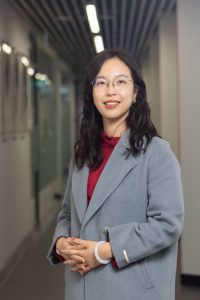
Prof Elaine Leung Lai Han
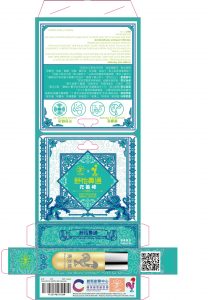
Soothease Herbal Inhaler, a product successfully incubated at UM
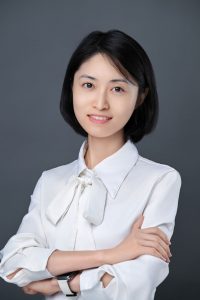
Prof Huang Jumin
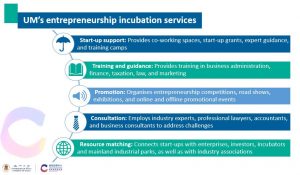
UM provides comprehensive entrepreneurship incubation services
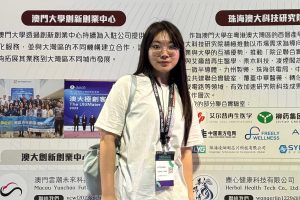
Wang Yiting
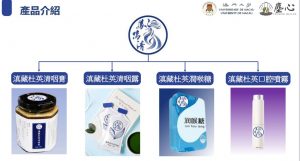
Elaeocarpus braceanus products
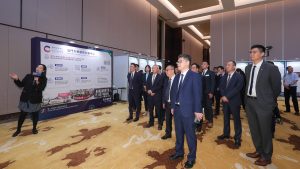
CIE organises The UltiMater
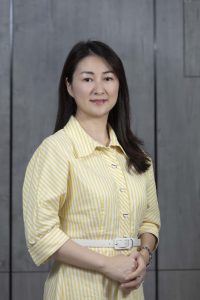
Dr Ni Jingyun
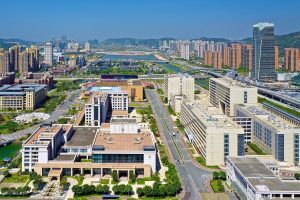
UM has incubated more than 50 start-ups through CIE
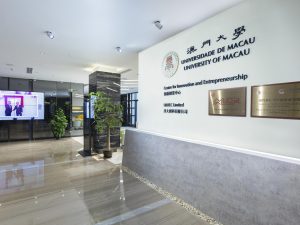
CIE leverages its advantages as a national co-working space
